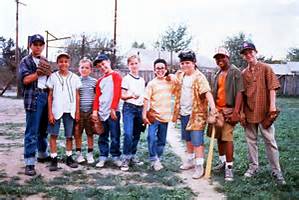
I have shared with you the what, where, how, and why’s for reaching the next generation. To reiterate “the why,” I will just say because soul-winning is the most important thing, because hell is real. If Tom Petty, who has a great voice and sang the lyrics, “you can stand me up at the gates of hell and I won’t back down” could stand at the gates and feel the heat from hell, I do not think he would back down. I think he would try to back up. The only problem is that the time for backing up would be too late.
Today, I want to share with you the “when?” When is the best time (age-range) to reach the next generation? It is always a good time to share the gospel and sharing the gospel with any age-group is good, but I have become convinced that churches and families must make a concerted effort to evangelize children. It was revealed in the 2015 Bridge Preteen Conference by George Barna that a “child’s moral foundations are set by age 9. A child’s worldview, theological foundation, beliefs, and religious practices are in place by 13. Only one-third of preteens have accepted Christ.”
A popular notion has arisen, a term originated by Dan Brewster, which has been labeled the “4/14 Window.” The notion is that 85% of all Christians in the USA and anywhere from 60-80% of all Christians in the world come to Christ between the ages of 4 and 14. The 85% statistic comes from a survey completed by the International Bible Society in the 90’s. Research compiled by Barna Group shows that children between the ages of 5 and 13 have a 32 percent probability of accepting Jesus. It has been said that the 10/40 Window and 40/70 Window are about where missionaries should go, and the 4/14 Window is about whom missionaries should focus on. Awana is an international evangelical organization directing such ministry efforts towards children. I happen to know the Regional Ministry Director for the Caribbean Islands and he himself would be considered a missionary. However, you can be a missionary to children right where you are!
I want to re-emphasize that all generations are important and that you should not neglect telling a person of any age about the love God has for him or her. But I do agree with Barna that churches and families should strategically target or prioritize evangelism efforts toward children (focusing even more on younger children). We cannot afford to lose a generation. If we do, we will follow the footsteps of generations found in Old Testament narratives such as the storied relationship between David and his son Absalom or the time in between the various judges who served the nation of Israel. Space does not permit me to write what Jesus or the New Testament has to say in reference to the generational transfer of faith. We just do not want to reach a point in time where a generation forgets what the Book of the Law is or where it may be found (remember Josiah).
I have been serving the next generation the last fifteen years of my life. I have coached eight years of middle school basketball (boys and girls) at four schools, ministered to students at five churches, taught students at three schools (public and private), and served as a counselor at three YMCA’s. In my early years of youth ministry, I would often hear about or read the expression, “Youth are not the church of tomorrow, they are the church of today.” The expression originated from Saddleback Youth Pastor Doug Fields at about the time his Pastor Rick Warren’s book Purpose Driven Life was gaining in popularity.
As much as I have always loved Doug’s expression, it is beginning to wear thin. Today, we must begin to verbalize a new expression, “If we don’t let students be the church of today, they won’t be in church tomorrow.” Whereas Doug’s mantra required a mind-set shift from the church in mental assent, the new mantra requires a missional mind-set shift from the church necessitating mobilization from students and resulting in action or service. Perhaps this is why servanthood-evangelism is gaining traction.
As we await the upcoming World Series, let me provide you with an example of children on mission by referring to the sport of baseball. How many children do you know of that play baseball? I, myself grew up playing Little League baseball and may have even batted against Jake Westbrook, a pitcher from my hometown who pitched in two World Series. What if we trained, equipped, and released children with missional mindsets to engage the culture, in this case, their baseball teams with the gospel rather than just hand children a trophy and hope they are happy. In other words, what would happen if we provided children a purpose and issued children a calling higher than the goal of obtaining a .300 batting average. We might not only witness a mind-shift, but a culture-shift! God, may we the church allow our children to be the church today so there will be a church tomorrow!